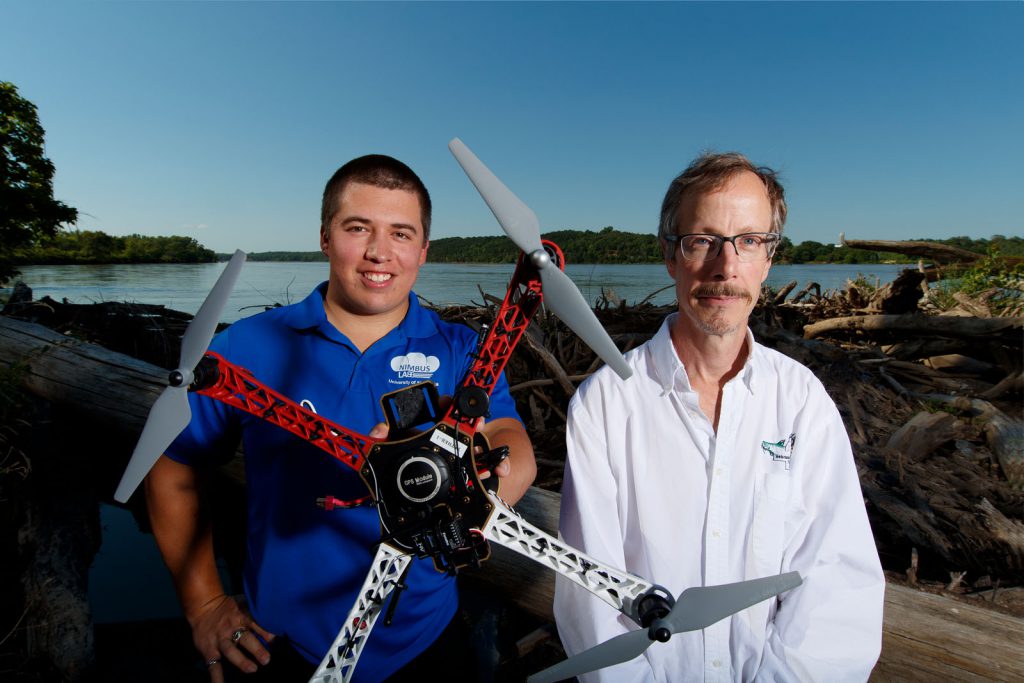Resilience Training Tackles Food, Water, Energy Issues
• 409 parts per million of carbon dioxide in the atmosphere.
• 18.7 million acres deforested annually.
These and other numbers hang above Daniel Rico’s laboratory desk – daily reminders of the urgent resilience and climate change problems he aims to tackle in his career. With support from a new National Science Foundation-funded interdisciplinary graduate training program, the Nebraska computer science and engineering master’s student is gaining skills to do it.
“I’m a far more capable and better engineer because I’m learning to collaborate with people from other fields,” he said.

A five-year, $3 million NSF Research Traineeship grant funds Nebraska’s program, focused on agricultural resilience and vulnerability. Its goal is helping participants make informed decisions about using limited natural resources as demand for food, energy and water increases.
The program focuses on the Platte River Basin, where agricultural systems are among the world’s most productive and efficient. But water shortages, demographic shifts, climate variability and land use changes threaten the basin and other landscapes worldwide.
“If we discover ways to make the Platte Basin more resilient, not only will we be able to maintain it long term, we can also replicate the model globally to help ensure local and global food security,” said project leader Craig Allen, research professor and director of the Nebraska Cooperative Fish and Wildlife Research Unit. The project includes experts in environmental science, engineering, agriculture, computational sciences and social sciences.
Rico is developing networks of tether-powered drones to measure crops’ responses to climatic changes, such as torrential rainfall. This information could reveal which crops respond best to adversity, enabling researchers to analyze those plants’ DNA and develop crops with heightened resilience.
” … we can also replicate the model globally to help ensure local and global food security.”
Craig Allen
Rico is one of about 20 trainees and 15 management professionals participating in research, coursework, seminars and externships through the School of Natural Resources-based program.
The curriculum bridges existing graduate offerings in water and agricultural sciences, laying the foundation for a permanent resilience-focused graduate program at Nebraska. It’s one of the nation’s first to fully embrace panarchy theory, a social-ecological approach encompassing all system functions – large and small.
There’s no better place for this type of training, Rico said, because Nebraska is one of the world’s most vibrant agricultural hubs.
“If you’re looking to study resilience, this is the place to be.”
+ Additional content for Resilience Training Tackles Food, Water, Energy Issues
NSF grant to boost graduate education in ag resilience